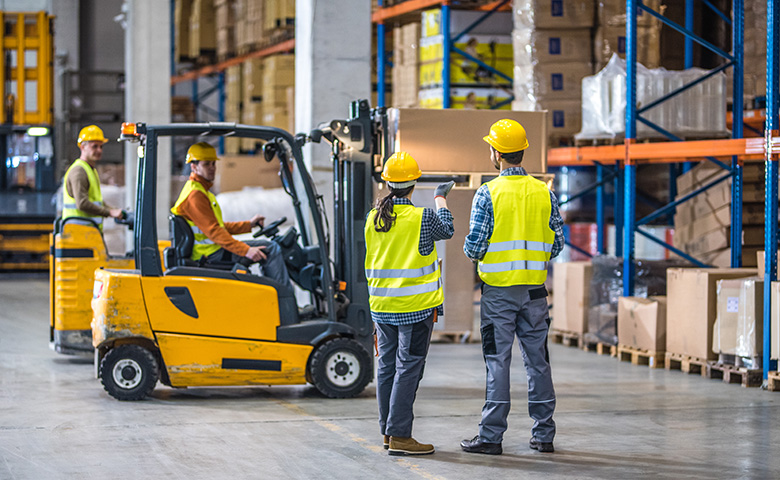Operating a forklift safely requires more than just getting behind the controls. Whether you’re a beginner or an experienced operator, undergoing comprehensive training and following key safety tips can significantly reduce accidents and enhance efficiency on the job. In today’s blog post, we’ll dive into the top forklift training tips that are essential to maintaining a safe work environment. We’ll discuss everything from the fundamentals of operation to pre-operational checks and proper handling techniques.
Forklift accidents are not only dangerous but can also lead to costly downtime and damage to goods. By emphasizing rigorous training and strict compliance with safety standards, employers can foster a safe work culture. Let’s explore some crucial aspects of forklift training that can help in mitigating risks and reinforcing safety protocols in material handling.
Understanding Forklift Operation Basics
The first step towards safe forklift operation is understanding the basics of the machines themselves. This includes knowing different types of forklifts and their specific operations. Operators must be trained in the features and limitations of the forklift they are using. Crucial aspects such as load capacity, center of gravity, and the mechanics of steering are foundational knowledge every operator should possess. For more detailed insights into setting up a successful training program, consider exploring How To Get Forklift Training For Your Team.
Many accidents occur due to operators being unfamiliar with the particular model of forklift or the appropriate handling techniques for different loads. Effective training programs include both theory—such as operator manuals and safety guidelines—and practical, hands-on sessions to ensure operators fully understand their equipment.

Conducting Regular Inspections and Maintenance
Maintaining a forklift is as important as knowing how to operate it. Before any operation, a thorough pre-use inspection should be executed to identify potential hazards or mechanical failures that could lead to accidents. This includes checking fluid levels, ensuring tires are intact, verifying brakes function well, and confirming that warning lights and other safety features are operational.
In addition to daily inspections, regular scheduled maintenance should not be skipped. Adherence to maintenance schedules provided by manufacturers can prevent most of the technical failures associated with forklift operations. These checks not only guarantee safety but also prolong the lifespan of the machinery.
Emphasizing Proper Load Handling Techniques
A significant portion of forklift accidents occur due to incorrect loading practices which can lead to tip-overs or dropped loads. Operators must be trained thoroughly on how to assess load weights, properly stack loads, and securely maneuver them around the facility. Guidelines on how to handle unstable or oversized loads should also be included in safety training.
Training also needs to cover how operators should behave if a load becomes unstable during transport—knowing when to stop and stabilize versus when to continue can be crucial in preventing incidents.
Creating a Safety-First Culture
The importance of creating and maintaining a safety-conscious work culture cannot be overstressed. Forklift safety training should be ongoing and include regularly updated courses that remind and inform about new regulations or company policies. Promotion of safety practices through visual aids like posters, regular safety meetings, and incentives can reinforce safe practices.
A supportive environment where employees feel comfortable reporting potential hazards without fear of retribution plays an integral role in minimizing workplace incidents related to forklift operations.
The Role of Supervision in Operator Safety
Supervision is key in upholding safety standards among forklift operators. Supervisors should ensure that all operators follow the established procedures and perform random checks to confirm adherence to safety guidelines. They play a critical role in both mentoring newcomers and providing refresher courses for seasoned operators.
Taking immediate corrective actions when unsafe practices are observed can deter negligence and reinforce the seriousness of workplace safety regulations.
To conclude, ensuring proficient forklift training goes beyond avoiding fines or fulfilling legal requirements—it’s about creating a secure workplace where every team member feels responsible for not just their own safety but also that of their colleagues. Integrating these top five aspects into your training regime will better prepare your team and potentially save lives.
Keep revisiting these tips regularly as part of an ongoing commitment to workplace safety and operational excellence. Remember, effective forklift operation is a blend of knowledge, careful maintenance, and an unwavering focus on safety.

